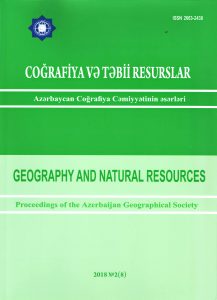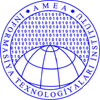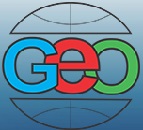GOOD OFFICES OF MARTIN BEHAIM AND EXPLANATION OF QUESTIONS CONCERNING BRAZIL - PART ISeveral scientists note that, German geographer Martin Behaim (1459-1507) sailed South American coasts within one of secret expeditions. This thought is considered frivolous as Behaim was weak scientist and unprofessional navigator. Portuguese exploring coasts of Africa – skilful seamen, captains, boatswains and navigators were masters of the navigation school established by Enrique in Sagrish. In accordance with several sources, Martin Behaim settled in Azores in the middle of 90th years of XV century and it is still unknown what he was occupied with there. In several scientists’ mind, German scientist travelled western coasts of the Atlantic Ocean within secret expeditions of Portuguese and may be approached South and North American coasts.
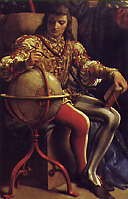 Martin Behaim (1459-1507) Historians explain it as following: if Martin Behaim sailed in the Western Atlantic, he could reach coasts of both continents. In accordance with several hypothesizes, he knew territories between Floridian peninsula and Brazil before 1948. Behaim had discovered South America with anonymous captains of Portuguese’s vessels and had given necessary information to Cabral for the discovery of Brazil.1 If Martin Behaim had reached South American coasts and islands located around it, he had to note those territories on the biggest globe made by him in Nurnberg in 1492. Besides it, he could write special notes about mentioned lands after travels ended. He could also make maps describing outlines of coasts of the New World, which was interesting for seamen as an air and water. Behaim knew that, maps of unknown and newly discovered lands were the most valuable documents of that time. The scientist’s map didn’t include any detail about the southern continent located on the other side of the Atlantic.1 Thus, as there isn’t any historical document, it hasn’t been proved that, Martin Behaim reached America in 90th years of XV century. 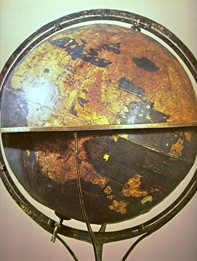 The globe made by Martin Behaim. Nurnberg (1492) Some scientists note that, even old seamen’s maps made in 1440 when the prince Enrique (Henrique) lived, prove that, one of Portuguese’s vessels approached today’s Pernambuco state of Brazil. Unfortunately, this sensational fact couldn’t be affirmed as there weren’t enough documents. The reason is as following: Information about sea expeditions organized in Lisbon was coded at that time as powerful sea countries of Europe – kingdoms as Venetia and Aragon organized expeditions in order to discover unknown territories located on coasts of the Atlantic Ocean and competed with Portugal in this field. Andrea Bianco had made a map of large territory and had written an illegible legend. In Julia Oldham’s (1894) mind, Portuguese had discovered Brazil in 1448. When he read the legend, came to the conclusion that, “one of islands was situated at 1500 miles towards the west”. Oldham thought that, it was Brazil, which was situated at 1520 miles towards the west of Green Cape Islands. The Portuguese scientist Batalia Reich supported Oldham’s opinions concerning this problem, but this idea didn’t spread through the community.1 It is considered frivolous hypothesis as Portuguese sea travelers could misappropriate discovered lands if they reached Brazilian coasts. It was reasonless to keep this fact secret. Portugal didn’t afraid of neighbor countries as Castilia was busy with Reconquista, Venetia struggled with Genoa and Arabian pirates in order to be hegemon in the Mediterranean, Ottoman Empire fought with Byzantine, and 100-year war continued between France and England. It means that, Portuguese sea travelers hadn’t reached Brazil or coasts near it. But it doesn’t mean that, they hadn’t organized expeditions in the Atlantic Ocean. (Continue of article: “Portuguese travelers carrying out research in the Atlantic Ocean”) Best regards, the member of Azerbaijan Geographic Society, President grant holder on literature, laureate of the “Golden pen” award, writer/ investigator Ramiz Daniz email: [email protected], [email protected] 1 Хенинг Р. Неведомые земли. Пер. с нем. М., 1963, т. IV, гл. 198.
1 Дитмар А. Б. От Птолемея до Колумба. М. 1989, С. 230.
1 Дж. Бейкер. История географических открытий и исследований. Перевод с англ. под редакцией и с предисловием Магидовича И. П. М., «Издательство иностранной литературы». 1950. стр. 44.
 33453 33453 |
|








 AZ
AZ EN
EN RU
RU


